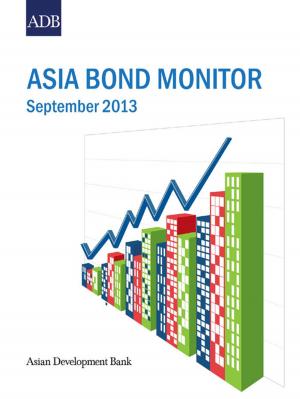Sanitation in India: Progress, Differences, Correlates, and Challenges
Business & Finance, Economics, Sustainable Development, Economic Development| Author: | Asian Development Bank | ISBN: | 9789292547202 |
| Publisher: | Asian Development Bank | Publication: | October 1, 2009 |
| Imprint: | Asian Development Bank | Language: | English |
| Author: | Asian Development Bank |
| ISBN: | 9789292547202 |
| Publisher: | Asian Development Bank |
| Publication: | October 1, 2009 |
| Imprint: | Asian Development Bank |
| Language: | English |
Poor sanitation is responsible for the spread of a number of communicable diseases, resulting in lost productivity, reduced quality of life, and impoverishment. Sanitation is one of the most cost-effective ways to improve public health. Using nationally representative data sets, the report presents analyses of progress, differentials, correlates, and challenges of sanitation in India, and discusses the policy implications of the findings. While significant progress has been achieved in the last decade, the scale of unmet need for sanitation in India is huge. Greater attention on the disadvantaged—households from the poorest quintile and scheduled tribes—and the states that have consistently underperformed could help accelerate further progress.
Poor sanitation is responsible for the spread of a number of communicable diseases, resulting in lost productivity, reduced quality of life, and impoverishment. Sanitation is one of the most cost-effective ways to improve public health. Using nationally representative data sets, the report presents analyses of progress, differentials, correlates, and challenges of sanitation in India, and discusses the policy implications of the findings. While significant progress has been achieved in the last decade, the scale of unmet need for sanitation in India is huge. Greater attention on the disadvantaged—households from the poorest quintile and scheduled tribes—and the states that have consistently underperformed could help accelerate further progress.















